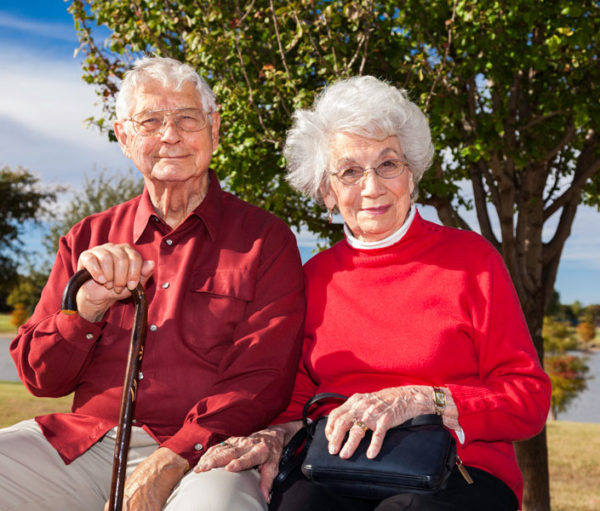In Sickness and In Health: Spouse Caregivers Need Our Support

Earlier this month, the American Heart Association (AHA) released a study showing that married people have a lower risk over time of suffering a heart attack. A supportive partner can encourage us to keep up with our medical appointments and wellness routine. And beyond that, having a good relationship lowers the stress that damages the heart and is linked to all kinds of other health problems. The AHA study showed that “physical intimacy, such as holding hands or hugging, can lower levels of stress hormones.” And our partner can be our safe spot—how often do we come home after a lousy day at work, our blood pressure boiling, and then calm down after venting to our spouse?
But what if spouses or partners have a troubled relationship? Research by Prof. Julianne Holt-Lunstad of Brigham Young University showed that people experiencing marital difficulties had higher stress than happy spouses or even single folks. There are many things that can add stress to a marriage. Caregiving is one of them!
And although having a spouse or partner raises our chances of successfully managing health conditions, it also puts the caregiver spouse at higher risk. “Caregiving tasks may include the management of pain and other symptoms, frequent hospitalizations, and decision making regarding nursing home entry and the use of life-sustaining treatments,” said a recent report from HealthAffairs. “Caregivers who are providing care to family members in the last years of life are vulnerable to symptoms of depression and anxiety and related emotional, physical, and financial challenges.”
Why don’t spouse caregivers ask for help?
It’s so important for any family caregiver to access support. Yet according to the AARP, spouse caregivers aren’t doing so. While 80% of non-spouse caregivers receive help from family or access community support services, spouse caregivers are much less likely to seek out this help. Why is this?
For one thing, family and friends often take spouse caregivers for granted, and hesitate to offer to help because they fear intruding on the couple’s privacy. Caregivers themselves might take their “in sickness and in health” vows so seriously that they refuse to ask for or accept help. But they should let go of the inclination to go it alone. “As a former spousal caregiver, I certainly understand the desire to take care of all of a spouse’s needs,” said Carol Levine, Director of the United Hospital Fund’s Families and Health Project. “But the care that is needed and the responsibilities thrust upon family caregivers by our healthcare system—typically, without adequate support—are more than any family caregiver, particularly an older spouse, can handle alone.”
It’s time for everyone to put their heads together. Hold a family meeting to work out a care support plan for the ill spouse. Studies show many spouse caregivers are dealing with health problems of their own—all the more reason to get help. If you or a loved one is a spouse caregiver, learn about public and private senior support services, caregiver education and support groups. Supported senior living, such as an assisted living or skilled nursing community, not only ensure the well-being of the ill spouse, but also improve the well-being of the caregiver spouse.
Nurturing marriage in a couple’s “new normal”
Caregiving sometimes creates a difficult new marital dynamic. Some of the relationship navigation at this time will be strikingly analogous to the “couple work” they’ve done before—establishing a balance of needs, time, resources, and togetherness versus “me time.” Caregiving might also bring to the surface long-standing tensions and conflict. It’s never too late for marriage counseling. Many older adults hesitate to “air their dirty laundry,” but they should be assured that professional counselors are bound by confidentiality. Think of this time as yet another stage in the marriage, right up there with adjusting to life together, the birth of children, career changes or retirement.
Source: IlluminAge
The information in this article is not intended to replace the advice of your health


